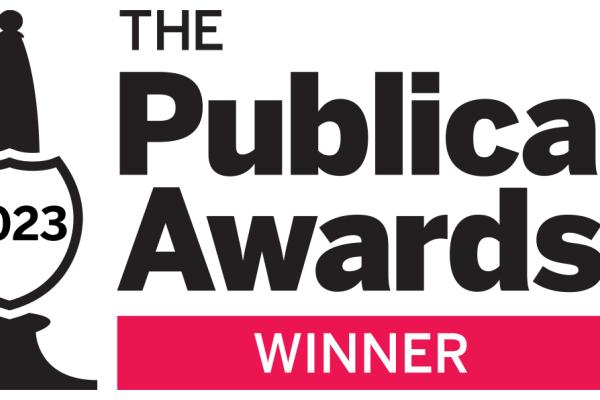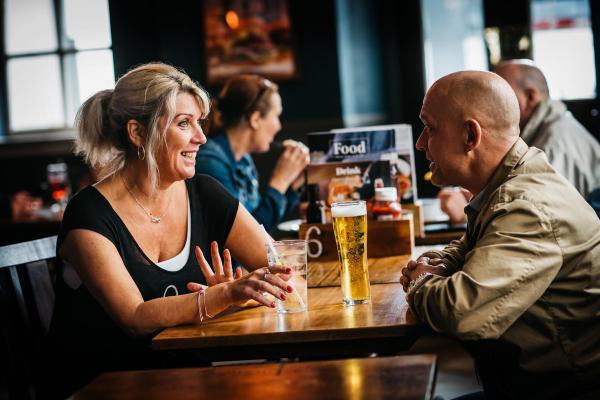3 essential skills that make your front of house staff the best around
This guest post from Liz Burton at High Speed Training: an online learning provider who offer training courses in sectors ranging from Business Skills through to Health and Safety. Here Liz explores the key skills your bar and waiting staff need to ensure customers get great service, and they become an asset to your pub business.
Training Your Bar Team For Success
Working in a pub is about more than just serving people food and drinks; it’s about providing an exceptional experience. It’s about making these people feel like they’re in their second home. How do you achieve this?
Easy: by having great front of house staff.
Well… it’s easy once you have a top notch team in place, running the pub as smoothly as a perfectly-prepared drink. So you need to hire excellent staff from the get-go or provide comprehensive induction training that gives employees the essential skills they need to become the best at what they do. Preferably, you’ll do both.
There are 3 key areas in which staff should be skilled:
- Applying Alcohol Licensing Law.
- Customer service.
- Premises maintenance and hygiene.
Front of house staff are the first people customers see and interact with when they come to your pub. They are the ones that leave a lasting impression on guests. And that impression could be positive, negative, or simply lacklustre, depending on whether or not they have these skills, and influences whether or not they return.
Applying Alcohol Licensing Law
Your ultimate aim is to provide people with enjoyment. But laws on alcohol exist for a reason: to keep people safe, so this is your first priority. Staff who have strong knowledge about mandatory legal duties are invaluable for the ongoing compliance and success of the business.
According to Alcohol Concern, alcohol-related harm costs England an estimated £21 billion annually. This is spent on NHS costs, combatting alcohol-related criminal activity, and lost working days and productivity. This can be reduced by complying with the law.
Under the Licensing Act 2003:
- Everyone must receive suitable and sufficient training. Staff must be kept up-to-date on licensing requirements (by taking Licensing Law Awareness training), alcohol limits and restrictions, and health and safety procedures.
- Staff must have permission to sell alcohol. They need to hold a premises licence or obtain permission in writing from the premises’ licence holder to serve alcohol in their absence.
- Staff must not irresponsibly promote alcohol. For example, if you offer two free shots with every cocktail, this encourages excessive drinking and goes against the Licensing Act.
- Staff must be able to carry out age verification. Staff must request identification if they suspect a customer is under 18 and must know how to spot a fake ID. A valid passport, photo driving licence, or a PASS card are acceptable forms of ID – student cards and birth certificates are not.
Customer Service
The difference between a pub that gets a decent number of customers and a pub that is booming with dozens of regulars every week is attributable to the customer service skills of staff.
Where would you rather go: a pub with a sour-faced bartender who communicates through unintelligible grunts, or a pub with staff eager to chat and go above and beyond to accommodate you?
Examples of customer service skills that make staff stand out include:
- Excellent communication skills. Being well-spoken and confident gives off an air of professionalism to customers; they’ll trust and feel friendly towards you, which enhances their enjoyment and patronage. Plus, good communication enables staff to coordinate and run the business smoothly.
- Knowledge of the menu and recommendations. Customers lose confidence in a business when staff lack knowledge of what they sell and of what’s popular. It suggests that staff don’t care, which in turn gives the impression that food and drink is prepared poorly and that customers are a burden. Customers won’t have a good time, and they won’t come back.
- Ability to work under pressure. On busy nights or when customers create conflict, staff need to know how to respond suitably and professionally. They are the face of the business, so if they don’t keep their cool during a rush of orders or a customer complaint, the business’ reputation may be damaged.
- Go above and beyond. The phrase ‘the customer is always right’ doesn’t mean they have all the answers; it means that their wants and needs come first. They are spending money at your pub, so they should feel like they’re getting their money’s worth. You must go the extra mile: answer all their questions, resolve issues swiftly, and offer a gesture of apology, e.g. a few free drinks. The value of making them happy and want to return is far greater than a couple of lost drinks.
Premises Maintenance and Hygiene
Ongoing maintenance and good hygiene practices ensure that your pub remains an inviting, safe place to eat and drink even several years after its opening day.
Ways to uphold maintenance and hygiene include:
- Ensuring equipment is cleaned properly. All staff should be trained in proper cleaning procedures and maintenance of equipment. Without proper care, equipment degenerates quicker than it should, Any loss in functionality slows down service and poses a contamination risk.
- Taking faulty equipment out of service and reporting faults. The health and safety of staff and customers is at risk when equipment breaks down. Staff should know to immediately stop using equipment that seems faulty and report it to a senior member of staff, who can arrange for its repair or replacement.
- Control cross contamination risks. The type of training food handlers need depends on their involvement in food preparation, but whatever the case is they need to understand how to control the four contamination hazards: microbiological, allergenic, physical, and chemical. Healthy customers are happy customers and that means repeat business and great reviews.
With all the skills discussed throughout this article, front of house staff bring a positive experience to customers; they encourage guests to return and put in a good word for your business, either to friends or via a review such as on TripAdvisor.
Don’t forget: word of mouth is the most powerful form of advertisement, and staff directly influence the words that define your pub.
Liz Burton is a Content Author at High Speed Training: an online learning provider who offer training courses in sectors ranging from Business Skills through to Health and Safety. High Speed Training’s blog – the Hub – has a vast array of articles to supplement these training topics..




